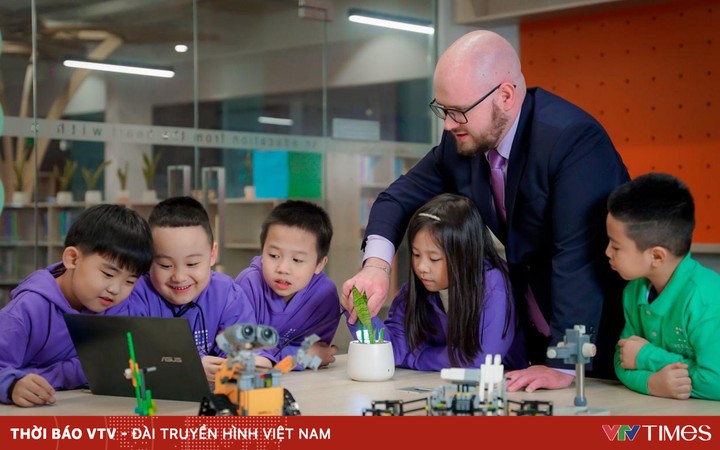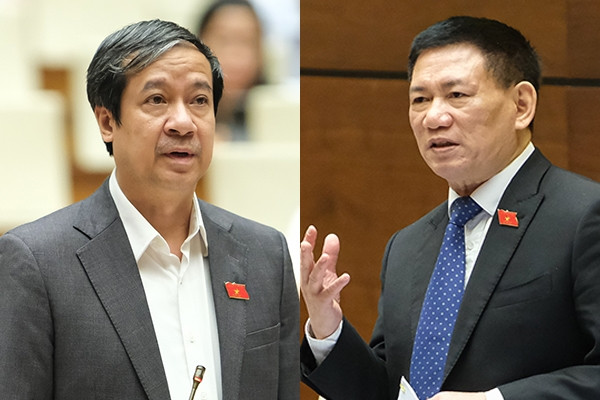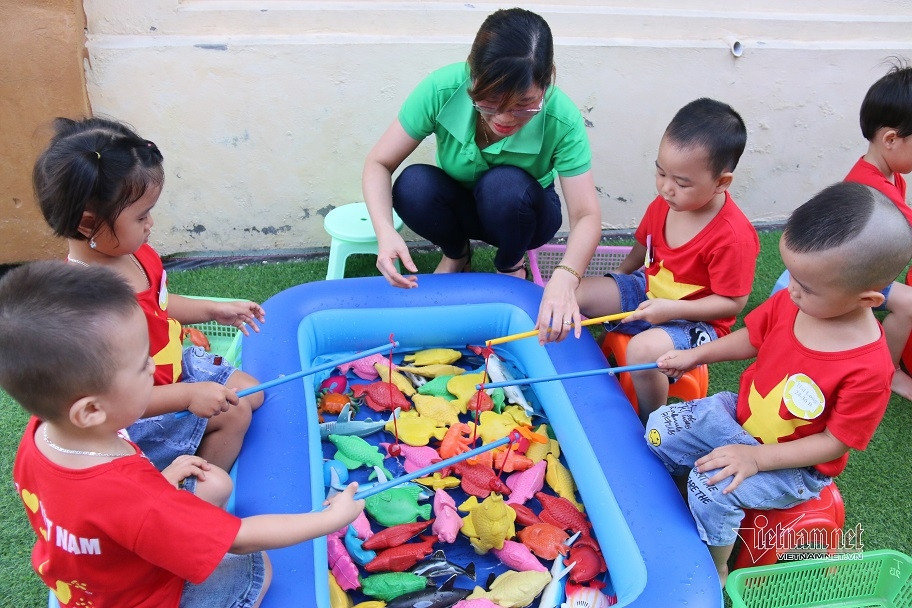How to overcome culture shock when studying in Australia
International students should actively join clubs, expand friendships… on understanding regulations and laws to avoid accidentally violating taboos while living away from home.
After every experience is a lesson. However, in order to reduce risks when studying and living in a completely different country, proactively understanding the culture, equipping them with necessary knowledge and skills will help young people avoid unnecessary shock. .
This is also a lesson from the practical experience of Helena Nguyen – FSO auditor at Ernst & Young Vietnam, University of Queensland alumnus and Jenna Nguyen – office assistant Vice Chancellor, Western Sydney University, alumnus of the Institute ISB, share in episode three seminar “Shine with Australia – Shine with Australia”.
Helena Nguyen used the word “shock” when asked about her time in Australia. Life and culture here are very different from what she imagined. Without relatives or friends, in the first two days, the female student born in 1999 just cried because she was homesick. But this situation will gradually change after a few months.
“When I’m in a new environment, make new friends, travel more, have new experiences, then I’ll get used to it. Don’t worry too much,” Helena advised young people.

Helena Nguyen (far left) with her dance group in Australia. Image: Characters provided
Each person will have a different way and time to adapt. However, she, like most other successful international students, chooses to actively connect with friends, join clubs inside and outside the school. With the thought of missing out on the good things outside, Helena decided to step out of her comfort zone and start by joining the Street Group club. Here, she met three more foreign friends. Coming from different countries and cultures, a group of friends empathize, understand and accompany each other on the path of studying abroad.
“Don’t hesitate to make new friends, join networking events or clubs depending on your interests because that’s where you will find very good friends,” she added.
Better prepared than Helena, Jenna Nguyen (born 1995) applied this solution from the very first day she came to Australia. She integrates quite well, has many native and international friends early on. However, the psychology of forcing oneself to integrate and follow what others do is also one of the “invisible traps” for many international students.
Jenna used to not know how to refuse invitations from friends due to fear of being judged, alienated or missing out on interesting things outside. This leads to a rather “panic” situation for the young girl, her feet wet and dry, coming to Australia.
The female student in a group of friends “drinks” in the park without knowing the host country’s prohibition on alcohol use in public places. Without knowing this, international students can get caught in a “trap” and be fined, negatively affecting the learning process. When she was reminded by some friends, she was quite surprised and quickly stopped the fun.

Jenna Nguyen (second from left) with friends at Western Sydney University. Image Characters provided
Besides, trying to forcibly integrate, not coming from her own desires, also made Jenna lose her balance between life, study and work. From these initial experiences, she learned the lesson that she must learn the rules and laws as well as know how to refuse and make decisions based on her inner desires.
“My advice to students is that when coming to Australia, you should learn and understand the regulations so that you can protect yourself when in a foreign country,” the speaker emphasized. strong.
The second “shock” international students in general and Australian students in particular need to pay attention to is language. For example, Australians use a lot of acronyms or slang words like McDonald’s is Macca’s, “afternoon” is “arvo”, “barbeque” is pronounced “barbie”…
Having studied English since childhood, coming from an English class in Ho Chi Minh City, Jenna is very confident in her foreign language listening and speaking skills. However, she was quite shocked to hear the accent (accent) and strange slang word system in Australia.
“At first, I was afraid to answer the phone because it was harder to hear it than outside,” the former international student confided.
Jenna Nguyen shared, this is one of the typical culture shocks for international students. Although the level of English in Vietnam is very good, many students still find it difficult to adapt, leading to gradually closed-mindedness and guilt because of their foreign language ability and only play with groups of students from the same country.

Le Nguyen Tra My – Vice President of the Vietnam Student Union – the host of the seminar “Shine with Australia – Shine with Australia” episode three. Image: Characters provided
Le Nguyen Tra My – Vice President of the Vietnam Student Association encountered a similar situation. She was quite fluent in English, but when she arrived in Australia, she also “stumbled” before a series of slang words of this country. The use of “slangs” or shortened words is a very new point that only when participating in student community groups, communicating more, female students born in 2001 know.
The way Jenna used to avoid being isolated from the community and overcome language shock is to actively participate in events. Former international students born in 1995 participate in Western Fair – an event held every semester of the school. Here, she learned about the program English Conversation Group ECG (English Conversation Group). When participating, each person will be placed in a group of local and international students to interact intimately with each other for about an hour per week, within the first 5 weeks of the semester.
In addition, Jenna also participates in Mates – a mentoring program for students when they first start studying at the school. She was helped by a local student and showed her how to use the school’s services, borrow books from the library or register for classes. Thereby, she can confidently communicate in English, better understand local and international cultures, and at the same time, build close friendships and global social networks.
Thus, to “prevent” Vietnamese students can completely prepare in advance by searching for the phrase “Australia slangs” before going to the country of kangaroos or joining a club. According to Jenna, many students often ignore the school’s support services. Meanwhile, those are tools to help you integrate well into the university environment.
“I made the most of these services to have the best study abroad experience. What I learned at ECG, Mates or student unions helped me better understand the culture and was a good preparation to apply for. jobs, enter the labor market here,” emphasized the female speaker.
Besides, in terms of communication, international students should pay attention to using words like “Please” or “Would you mind”. Because Australians attach great importance to politeness and respect others. According to the speakers, Australians are very kind and enthusiastic. Therefore, as long as they don’t lose sympathy because of such unnecessary things, international students can comfortably make friends with local people and experience a more convenient and fun study abroad life.
In fact, each person can have a very different experience. There are international students who are “shocked” when they are faced with a situation of “flushing the province of England”, ie being ignored by native speakers. However, these are only small experiences and young people have many other opportunities to get to know more people.
Update rate
The program is organized by ISB Institute – University of Economics Ho Chi Minh City (UEH), Australian Government Investment and Trade Agency (Austrade) and online newspaper. VnExpress organized, following season 7 – “Shine with Australia” by Austrade on IFO Show, VTV7.
The event gathered more than 20 speakers who are leading education experts, representatives of states and territories of Australia as well as many successful Vietnamese students studying abroad.
The seminar series also introduced Global Pathways, a model of study abroad that transfers and receives degrees from Australia’s Top 1% universities such as Macquarie University, Monash, Western Sydney, Wollongong, Griffith, South Australia, etc. many valuable scholarships.
Readers register to participate here.
at Blogtuan.info – Source: vnexpress.net – Read the original article here



